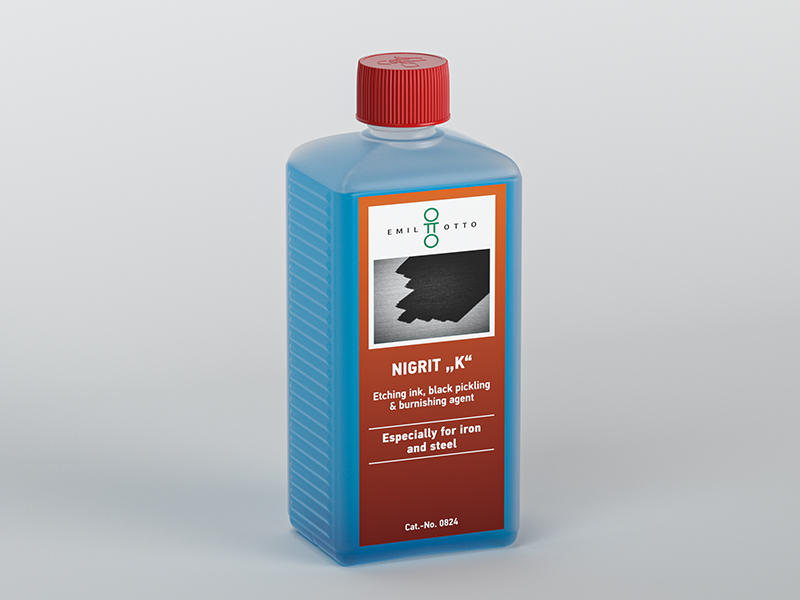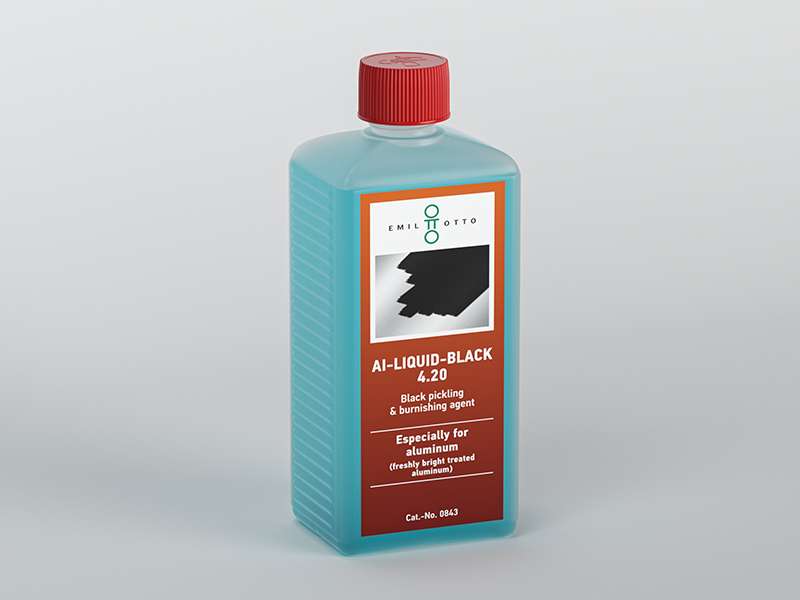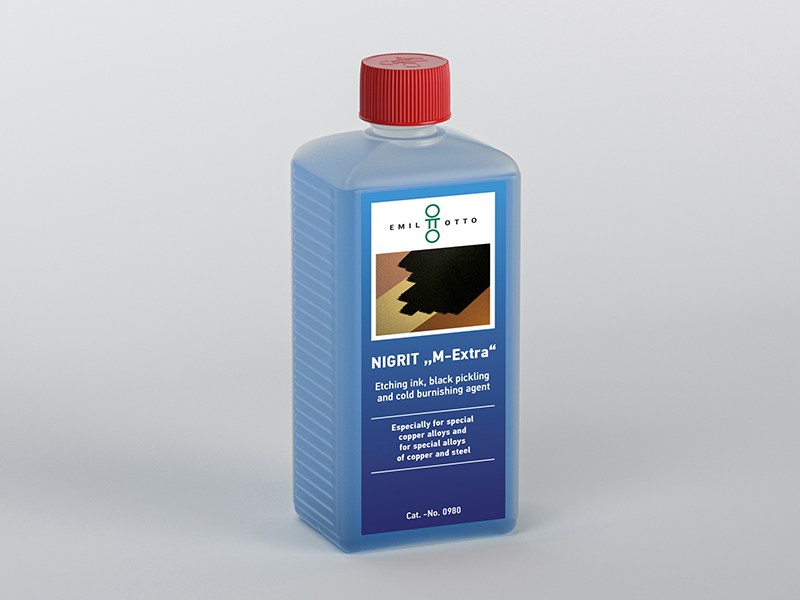NIGRIT “K”
Etching ink, black pickling & burnishing agent
• Liquid medium on acid basis
• Especially for iron and steel

Pictures may differ from the original.
Packaging units:
| Application area: | COLD BURNISHING - BLACKENING of iron and steel, corrosion protection |
| Application: | The solution supplied ready for use is to be filled into a resistant container made of GRP, HDPE or PP. |
| Degreasing and inserting the parts: | The parts to be blackened must be degreased before cold burnishing. In the simplest case, this can be done by washing with alcohol. |
| Blackening effect: | Thorough degreasing of the parts is a prerequisite for uniform blackening. Depending on the material (only a few seconds for ST 37), blackening occurs quickly. If the workpiece remains too long in the blackening solution, loose oxides will accumulate on the surface, which must be removed after the process (expediently with a scrubbing brush, or similar). If the blackening has not become sufficient, the burnishing process can be repeated after the material has been cleaned. It has turned out that more than two burnishing passes hardly show any significant improvement. If an irregular coloration can be seen after burnishing, this is an indication of insufficient degreasing. |
 Download product information
Download product informationPDF (188 KB)
Burnishing is the production of certain oxide layers (iron oxide) by chemical means. In many cases, iron parts must be protected from corrosion and should be given an attractive black color. The dimensional stability of the parts is maintained and even highly polished surfaces retain their gloss.
NEUTRASOL post-treatment
After removing the loose oxides, which should be expediently carried out in a neutralization bath with the product NEUTRASOL – Concentrate, Cat. No. 875, the workpiece should be dried and preserved.
Neutralization bath
Regular tap water together with our NEUTRASOL can be used to prepare the bath. The pH value must be checked constantly and should not fall below pH-10, otherwise the workpieces will start to rust.
Indicator paper is used for checking.
Preservation
EO post-treatment fluid, Cat. No.: 0871, is a temporarily effective, preservative metal protection for application after use of Nigrit “K”. Corrosion is always undesirable, therefore the metal surface should be treated briefly with this fluid (thin application) after each use. The water-displacing additives reliably prevent contact between the metal surface and remaining moisture.
Other indications
No workpieces should be left in the burnishing bath or remain in it too long, otherwise the burnishing agent will decompose and become unusable. When processing on a large scale, an exhaust system is required in any case, as combustible hydrogen gas can be formed by the decomposition of metal.
Questions about our products?
We will advise you by phone 06123 / 7046-0.




